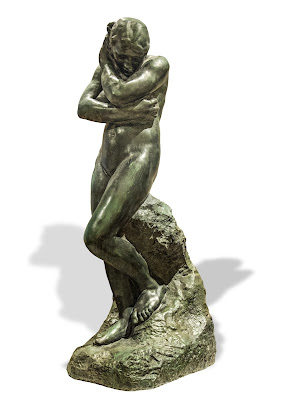The truth and the shame
Giorgio Agamben, Quodlibet, January 24, 2023
After what has happened in the last two years, it is difficult not to feel somehow diminished, not to feel — whether one wants it or not — a kind of shame. It is not the shame that Marx defined as “a sort of anger that turned inward”, in which he glimpsed a possibility of revolution. Rather, it is a question of that “shame of being a man”, of which Primo Levi spoke with regard to the camps, the shame of one who has seen happen what should not have happened. It is a shame of this type — as it has been rightly said — that, with all due proportion, we feel when faced by too great a vulgarity, when watching certain TV programmes, when confronted with the faces of their hosts and with the self-assured smiles of experts, journalists and politicians who have consciously sanctioned and spread lies, falsehood and abuse — and continue to do so with impunity.
Anyone who has felt this shame knows that he did not become better because of it. Rather, he knows, as Saba used to repeat, that he is “much less than he was before” — more alone, even if he has sought friends and associates; more silent, even if he has tried to bear witness; more helpless, even if someone listened to his word. One thing, however, he has not lost, but indeed has somehow unexpectedly gained: that is a certain closeness to something for which he can find no other name than “truth”, the ability to distinguish the sound of that word, which, if you listen to, you can only believe it’s true. That is why, and because, he may bear witness. It is possible — but it is not certain — that time, as the saying goes, ends up revealing the truth and proving — who knows when — him right. But that is not what he put into account with his bearing witness. What obliges him not to stop bearing witness is, rather, just that special shame of being, despite everything, a man — just as, despite everything, men are also those who, with their words and their actions, have forced him to feel shame.
Giorgio Agamben, Quodlibet, January 24, 2023
After what has happened in the last two years, it is difficult not to feel somehow diminished, not to feel — whether one wants it or not — a kind of shame. It is not the shame that Marx defined as “a sort of anger that turned inward”, in which he glimpsed a possibility of revolution. Rather, it is a question of that “shame of being a man”, of which Primo Levi spoke with regard to the camps, the shame of one who has seen happen what should not have happened. It is a shame of this type — as it has been rightly said — that, with all due proportion, we feel when faced by too great a vulgarity, when watching certain TV programmes, when confronted with the faces of their hosts and with the self-assured smiles of experts, journalists and politicians who have consciously sanctioned and spread lies, falsehood and abuse — and continue to do so with impunity.
Anyone who has felt this shame knows that he did not become better because of it. Rather, he knows, as Saba used to repeat, that he is “much less than he was before” — more alone, even if he has sought friends and associates; more silent, even if he has tried to bear witness; more helpless, even if someone listened to his word. One thing, however, he has not lost, but indeed has somehow unexpectedly gained: that is a certain closeness to something for which he can find no other name than “truth”, the ability to distinguish the sound of that word, which, if you listen to, you can only believe it’s true. That is why, and because, he may bear witness. It is possible — but it is not certain — that time, as the saying goes, ends up revealing the truth and proving — who knows when — him right. But that is not what he put into account with his bearing witness. What obliges him not to stop bearing witness is, rather, just that special shame of being, despite everything, a man — just as, despite everything, men are also those who, with their words and their actions, have forced him to feel shame.
(English translation by I, Robot)
Auguste Rodin, Ève au rocher (Eve at the rock), 1907. Photo © Didier Descouens. |
